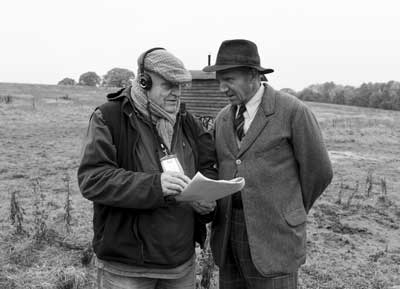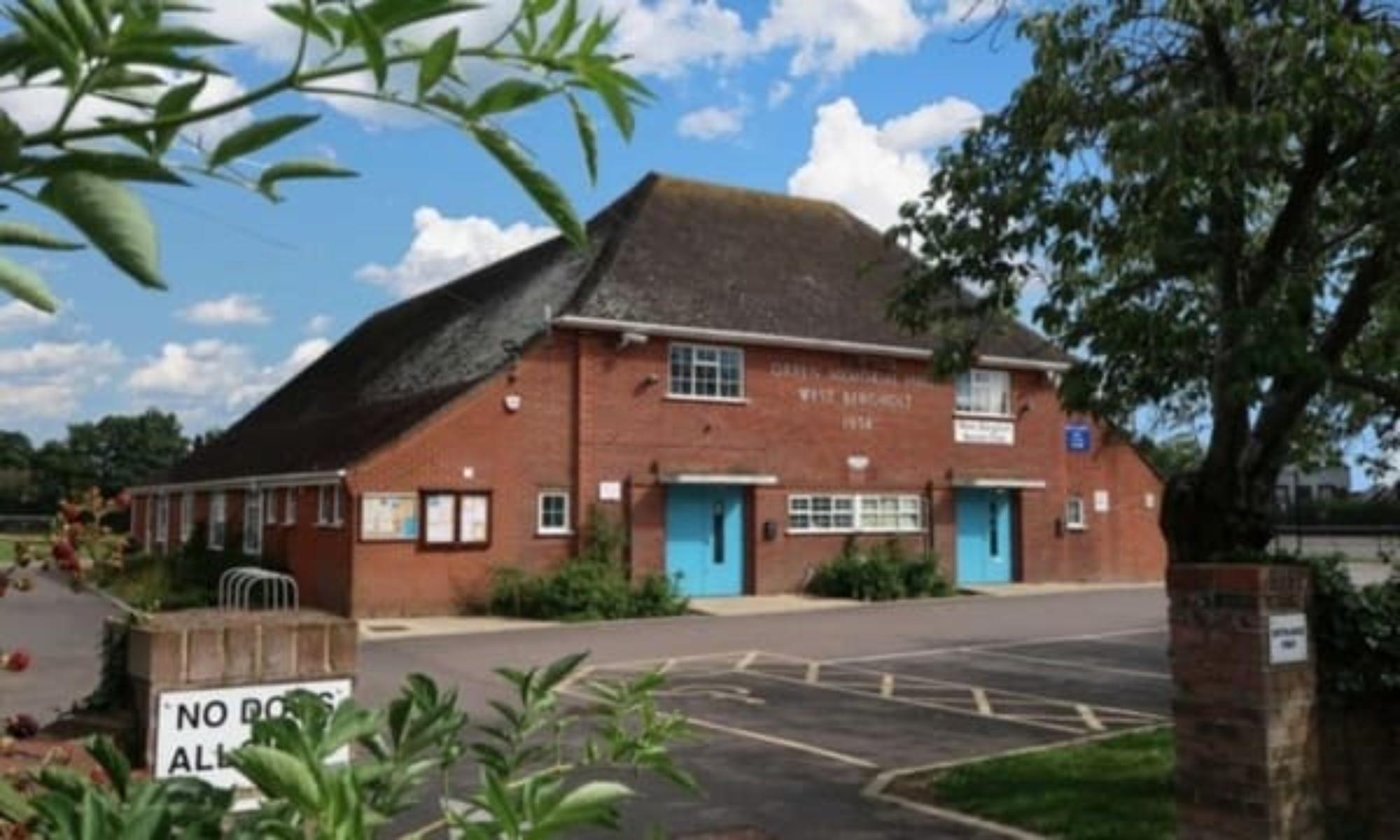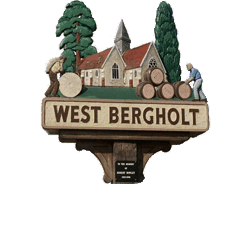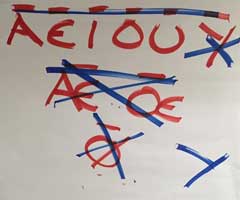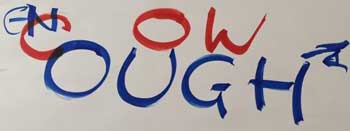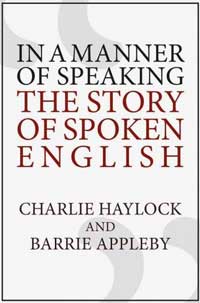 History of Spoken English
History of Spoken English
“History of Spoken English” was the topic of discussion at the Local History Group’s last meeting on 10th October. An audience of over 40 members and visitors were fascinated by Charlie Haylock’s story of English Language.
 Tribal influences
Tribal influences
This proved to be a fascinatingly informative as well as a very entertaining talk. Charlie took us back to post Roman times of the 6th and 7th centuries when the various “tribes” of Europe existed. He talked about their influx and influence on our alphabet and the structure of English. His use of a traditional flip chart and coloured pens enabled him to show us clearly the development of his story.
 Abundance of Vowels
Abundance of Vowels
The progression from 18 vowels to 6 and then to 5 when Y later became a consonant was intriguing. It was particularly interesting to hear about the impact of the invasion of Scandinavians and the fact that Danelaw removed the use of male and female versions of words well prior to the 1066 invasion by Willian the Conqueror. William himself came from Normandy area of France (Norseman – Viking) and their language had Germanic as well as Scandinavian influence. In practice, the Normans had little subsequent influence on the development of standard English.
 OUGH?
OUGH?
Charlie highlighted the “OUGH” combination of letters provoking some interesting discussion. The publishing of the King James Bible was a significant influence on the structure and style of English as we know it today. Charlie is a master of speaking in different English dialects and entertained with these throughout with his fascinating stories.
 In a Manner of Speaking
In a Manner of Speaking
Everyone was stimulated by Charlie’s presentation, but I am not sure many of us could remember the details! However, Charlie had that covered because he had brought along some copies of a book entitled “In a Manner of Speaking – The Story of the English Language” which he has jointly authored with Barrie Appleby. As well as a few individual purchases, the Group bought a copy for the WBLHG library which will be available for members to borrow.
Next Meeting
The next History Group meeting on the 14th November will be the second Bernard Colbron Lecture. It will feature local historian Andrew Phillips who will discuss “Colchester and the Armistice”. Andrew has written a few books that can be found online. The group will publish further details shortly. All are most welcome.
